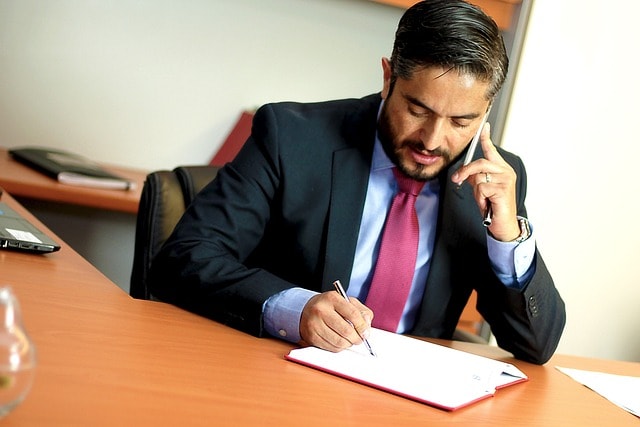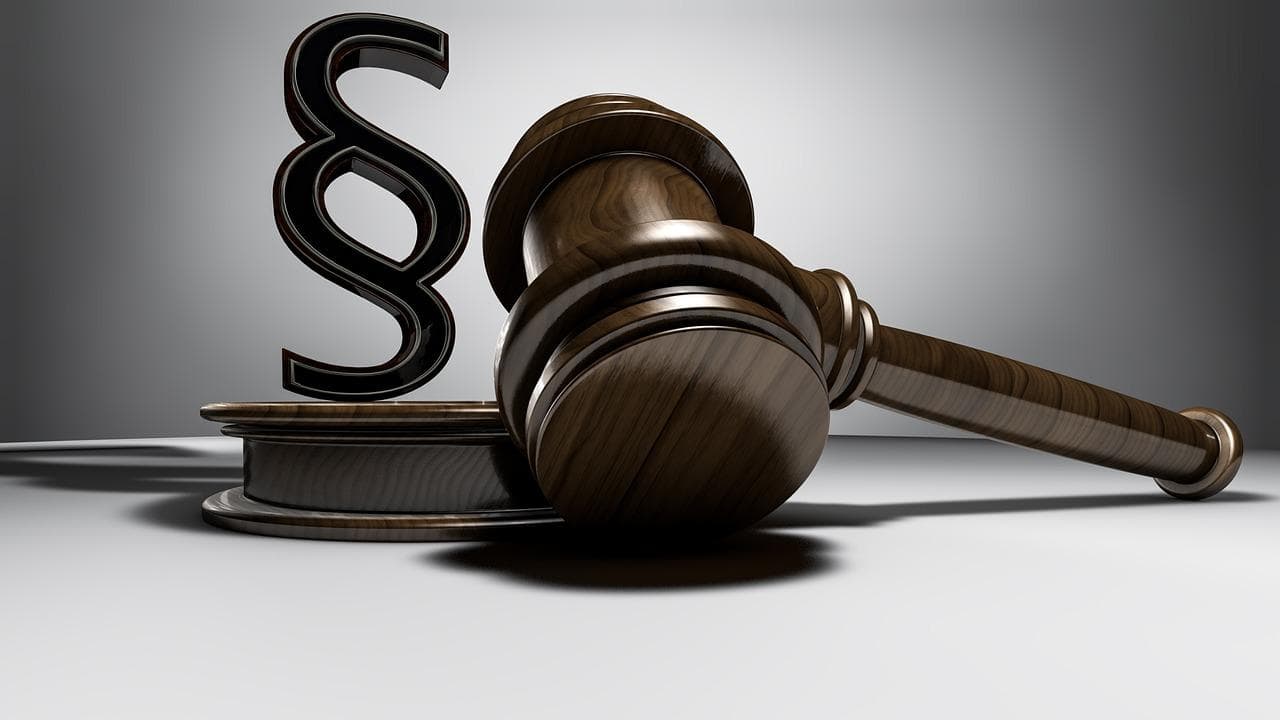
False accusations can cause significant emotional, financial, and reputational harm. If you find yourself facing such accusations, you may wonder whether you can press charges against the person who made them.
This article will explore what constitutes a false accusation, the consequences of false accusations, how to protect yourself, and the steps to take if you are falsely accused. We will also delve into whether you can sue someone for making false accusations and what happens next if you do.
What Constitutes a False Accusation?
A false accusation occurs when someone knowingly makes an untrue statement about another person, claiming they committed a crime or wrongful act. These false statements can be made to law enforcement, employers, social circles, or on public platforms. However, if someone falsely sues you, you should know the legal boundaries set.
For an accusation to be considered false, it must be proven that the person making the accusation knew it was not true at the time they made it.

Consequences of False Accusations
False accusations can have severe repercussions for the accused person. They can lead to:
Legal Consequences:
Being falsely accused of a crime can result in criminal charges, legal proceedings, and potentially jail time if not adequately defended.
Reputational Damage:
False accusations can tarnish an individual’s reputation, leading to lost business oppo
Emotional Distress:
The stress and anxiety of being wrongfully accused can cause significant emotional distress, impacting mental health and well-being.
Financial Strain:
Legal defense costs, lost income, and other related expenses can create substantial financial burdens.
How to Protect Yourself Against False Accusations
If you are facing false accusations, it is crucial to take steps to protect yourself:
- Remain Calm and Collected: It is natural to feel angry or upset, but it is important to stay calm and rational.
- Seek Legal Counsel: Contact an experienced criminal defense attorney immediately. They can provide legal representation and guide you through the process.
- Gather Evidence: Collect any evidence that can support your innocence, such as witness statements, emails, messages, or other documentation.
- Avoid Confrontation: Do not confront the person making the false accusations. Any interaction can be used against you.
- Document Everything: Keep detailed records of all interactions, statements, and evidence related to the accusations.
What to Do When Someone Makes False Accusations Against You
When facing false accusations, follow these steps:
- Consult an Experienced Lawyer: An experienced criminal defense lawyer can help you navigate the legal system and defend your rights.
- Report the False Accusation: If the false accusation involves a false police report or criminal charges, report the false statement to law enforcement officers.
- File a Defamation Lawsuit: If the false accusations have caused reputational damage, you may consider filing a defamation lawsuit against the person making false claims.
- Gather Witnesses: Identify and gather statements from witnesses who can support your side of the story.
- Prepare for Legal Proceedings: Be ready for court proceedings, whether they involve criminal or civil charges.

How to Prove Innocence When Falsely Accused
Proving your innocence when falsely accused requires a strategic approach:
- Alibi Evidence: Provide evidence that proves you were not at the scene of the alleged incident.
- Character Witnesses: Gather testimonies from individuals who can vouch for your character and reputation.
- Expert Testimony: In some cases, expert witnesses can provide testimony that supports your innocence.
- Contradictory Evidence: Present evidence that contradicts the false accusations, such as video footage, documents, or other tangible proof.
- Reasonable Doubt: Your defense attorney will work to create reasonable doubt about the accusations, making it difficult for the prosecutor pressing criminal charges to prove guilt.
Can You Sue Someone for Making False Accusations?
Yes, you can sue someone for making false accusations. This can be done through a defamation lawsuit, which addresses the harm caused by false statements. In a defamation case, you must prove that the false accusations were made with malice and caused you damage.
Defamation Lawsuit
To succeed in a defamation lawsuit, you must demonstrate the following:
- False Statement: The accused made a false statement about you.
- Publication: The false statement was communicated to others.
- Fault: The accused acted negligently or with malice.
- Damages: You suffered harm as a result of the false statement.
If you win a defamation lawsuit, you may be entitled to compensation for lost wages, emotional distress, and other damages.
What Happens Next if You Sue for Defamation?
After filing a defamation lawsuit, several steps will follow:
- Filing the Complaint: Your attorney will file a complaint in civil court, outlining the false accusations and the damages you have suffered.
- Discovery Phase: Both parties will gather and exchange evidence, including witness statements, documents, and other relevant information.
- Pre-Trial Motions: There may be motions to dismiss the case or other legal maneuvers before the trial begins.
- Trial: If the case goes to trial, both sides will present their evidence and arguments. The court will then make a decision.
- Judgment: If you win the case, the court may award you damages. The person who made the false accusations may also face other legal consequences.
Potential Consequences for Making False Accusations
Those who make false accusations can face several consequences, including:
- Criminal Charges: In some cases, making false accusations can lead to criminal charges such as filing a false police report or perjury.
- Civil Liability: Accusers may be held financially responsible for damages through a defamation lawsuit.
- Reputational Damage: Being exposed as a liar can damage the accuser’s reputation and credibility.
- Legal Penalties: Depending on the severity of the false accusation, legal penalties can include fines and jail time.
Can You Press Charges Against Someone for Making False Accusations?
Yes, you can press charges against someone for making false accusations, but it depends on the circumstances. Here are some scenarios where you might press charges:
- False Police Report: If someone files a false police report against you, they can be charged with making a false report, which is a criminal offense.
- Perjury: If false accusations are made under oath, the accuser can be charged with perjury.
- Harassment: Repeated false accusations may constitute harassment, which is also a criminal offense.
When Can I Press Charges for Making False Accusations?
You can press charges for making false claims in the following situations:
- Criminal Intent: If the accuser knowingly and maliciously made false statements with the intent to cause harm.
- False Police Report: When the accuser files a false report with law enforcement.
- Perjury: If the false accusations were made under oath in a legal proceeding.
How Can I Press Charges for Making False Accusations?
To press charges, follow these steps:
- File a Police Report: Report the false accusations to law enforcement and provide them with any evidence you have.
- Consult a Criminal Defense Lawyer: A lawyer can help you understand the legal process and represent your interests.
- Cooperate with the Investigation: Work with law enforcement and your attorney to build a strong case.

How an Attorney Can Help You in Accusation Cases
Dealing with accusations can be overwhelming and complex. An attorney can provide critical assistance in several ways to help you navigate the legal challenges and protect your rights. Here are the key points on how an attorney can help you:
- Legal Advice and Guidance: Attorneys clarify your legal rights and develop a strategic plan to navigate accusations effectively.
- Investigation and Evidence Collection: They gather crucial evidence and arrange forensic analysis to disprove false allegations.
- Building a Strong Defense: Attorneys scrutinize evidence, identify weaknesses, and present alibis to establish innocence effectively.
- Negotiations and Settlements: They negotiate settlements and plea bargains to minimize penalties and resolve cases efficiently.
- Representation in Court: Attorneys advocate for you in court, cross-examine witnesses, and challenge prosecution evidence.
- Filing Lawsuits: They file defamation or malicious prosecution lawsuits to seek damages and hold accusers accountable.
- Protecting Your Reputation: Attorneys manage media communications and take steps to mitigate damage to your public image.
- Handling Legal Procedures: Attorneys navigate legal complexities, ensuring all requirements are met to protect your case.
- Advocacy and Support: Your attorney stands up for your rights and leverages a network of professionals to bolster your defense.

Protect Your Reputation with BLG
Facing false accusations can be a harrowing experience, but knowing your rights and the legal options available can help you protect yourself and seek justice. If you are dealing with false accusations, consult an experienced criminal defense attorney who can provide the guidance and representation you need to navigate the legal system effectively.
By taking prompt and strategic action, you can defend your reputation and hold those making false accusations accountable.
Defend Against False Accusations Today!
Facing false accusations is daunting, but you don’t have to go through it alone. At BLG, our experienced attorneys specialize in defending clients against false accusations and seeking justice. Whether you need to defend yourself or explore legal options for defamation, our team is here to help.
Contact us today for a free consultation.

